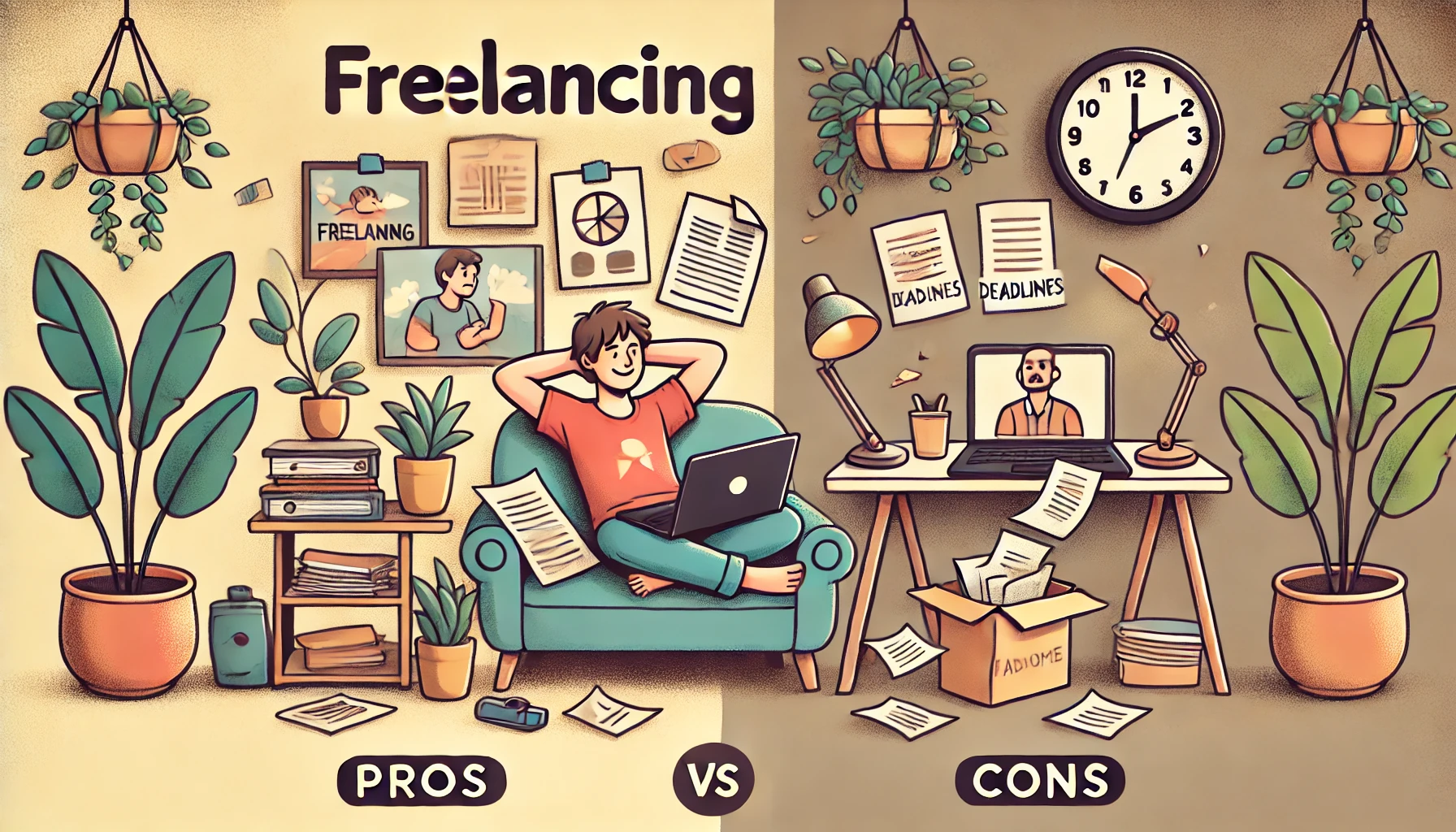Freelancing has become a popular career choice for many developers, offering a flexible lifestyle and the potential to choose your own projects. However, it's not without its challenges. For those considering the switch, or for anyone interested in understanding the freelance world from a developer's point of view, it's important to have a realistic understanding of both the benefits and drawbacks. In this blog, we will explore the major pros and cons of freelancing, especially for software developers.
Pros of Freelancing
1. Flexibility in Schedule and Location
One of the biggest draws to freelancing is the flexibility it provides. As a freelancer, you have the freedom to set your own hours and decide where you want to work. Whether you’re an early riser who prefers to start the day at dawn, or a night owl who codes best under the moonlight, freelancing allows you to design your schedule around your most productive times.
In addition, you're not restricted by geography. You can work from home, a café, or even a different country entirely, as long as you have a stable internet connection. This makes freelancing especially appealing to those who love to travel or those who need to adapt their work life to specific personal responsibilities.
2. Variety of Projects and Clients
As a freelancer, you have the opportunity to work on a wide variety of projects across different industries. This diversity not only keeps the work interesting but also helps you develop a broad skill set. By working with different clients, you can also grow your professional network, leading to more opportunities down the line.
3. Potential for Higher Earnings
Freelancing can be financially rewarding, especially for developers with in-demand skills. Instead of being locked into a fixed salary, freelancers have the ability to negotiate their own rates and earn more based on their expertise and the quality of their work. If you consistently deliver high-value services, you can set premium rates and potentially earn significantly more than in a traditional job.
4. Greater Autonomy
Freelancers are essentially their own bosses. You have control over which projects you take on, how you complete them, and how much you charge. This autonomy allows you to make decisions that align with your values and avoid projects that don’t feel right for you.
Cons of Freelancing
1. Income Instability
Unlike a full-time job with a fixed salary, freelancing often comes with income instability. Some months you may have multiple projects and be earning a lot, while other months you might struggle to find any work at all. This inconsistency can be stressful, especially if you have financial obligations like rent or a mortgage.
2. Difficulty in Finding Clients
Finding a consistent stream of clients can be challenging, particularly for those just starting out. Without the security of an employer providing steady work, you have to continuously market yourself and network to attract clients. Competing on freelance platforms can also be difficult, especially against experienced freelancers offering lower rates.
3. Lack of Employee Benefits
Freelancers do not get paid leave, health insurance, retirement plans, or other typical benefits that come with traditional employment. This means you’re responsible for setting up your own health insurance, retirement savings, and other benefits, which can be both costly and time-consuming.
4. Wearing Many Hats
Freelancing isn’t just about coding. You are also responsible for client acquisition, invoicing, taxes, customer service, and project management. This can be overwhelming, particularly if you’re not comfortable with these non-development tasks. All of these responsibilities can take time away from actual coding, which can be frustrating for some developers.
5. Isolation and Lack of a Support System
Freelancing often means working alone. Without colleagues to chat with during lunch breaks or team members to share ideas with, freelancing can become isolating. You also lack the support of IT staff, HR, or a team lead—everything falls on you, which can feel burdensome at times.
Tips for Navigating the Freelance Life
If freelancing sounds appealing but you’re worried about the downsides, here are a few tips to help you navigate the freelance life:
- Create a Financial Buffer: Save an emergency fund that covers at least three to six months of expenses to help alleviate stress during slower months.
- Network and Build a Strong Portfolio: Put effort into building a portfolio that showcases your skills and network actively to find new clients.
- Embrace Tools for Efficiency: Use productivity tools to streamline administrative tasks, such as accounting, project management, and scheduling.
- Stay Connected: Join online communities, participate in local meetups, or work from co-working spaces to combat isolation and stay motivated.
- Set Boundaries: Define work hours and stick to them to maintain a healthy work-life balance and prevent burnout.
Conclusion: Is Freelancing Right for You?
Freelancing can be a fantastic career path for those who crave flexibility, autonomy, and the chance to work on diverse projects. However, it also comes with challenges such as income instability, lack of benefits, and the need to manage every aspect of your business.
Deciding whether freelancing is right for you requires a realistic assessment of your tolerance for risk, your financial discipline, and your personal preferences for work-life balance. While freelancing demands self-discipline, adaptability, and resilience, it can also be incredibly rewarding for those who embrace its challenges and opportunities.








